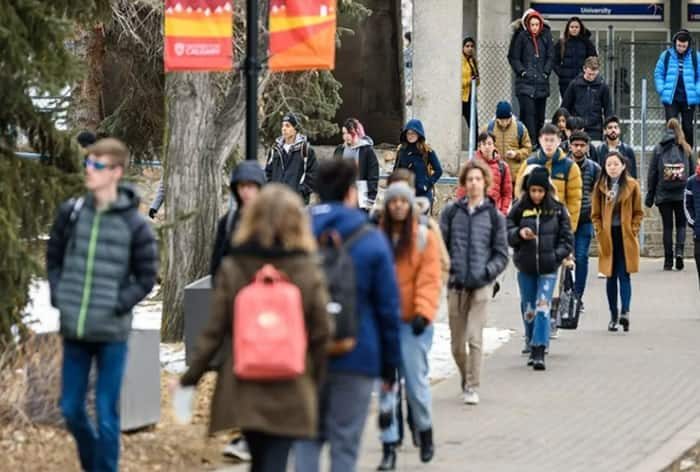According to students, many of whom are from India, working longer hours gives them stability amid rising costs in the country.
Toronto: International students in Canada who have off-campus work permits on their study permits say the country should permanently lift the 20-hour per week work rule. The Canadian government had announced a temporary lifting of the cap from November 15, 2022 to December 31, 2023, as employers faced unprecedented challenges in finding and retaining the workers they need for the post-Covid economic recovery.
According to students, many of whom are from India, working longer hours gives them stability amid rising costs in the country, CBC News reported.
Krunal Chavda, a 20-year-old Indian student at the University of Saskatchewan, said he has about $40,000 in student loans and could pay off $10,000 with full-time work.
“Last year was pretty good financially because I was able to work 40 hours a week and pay off my tuition,” Chavda told the Canadian news channel.
With the previous rule returning, Chavda is concerned about his finances as his grocery budget has increased from $100 to a whopping $300 per month due to inflation.
Most post-secondary international students are permitted to work on and/or off campus, with their permission to work printed directly on their study permit.
In the past, almost half of post-secondary international students in Canada reported earning an income while studying.
“I’ve been in situations where I’m like, ‘Okay, should I buy this or not?’ It really comes down to needs and not wants,” he said.
“There is a lot of uncertainty and fear in the air. We are on the brink… It is getting harder to hold on,” says Meghal, Chavda’s classmate.
Domenici Medina, an international university student from Ecuador, told CBC that the extra money earned helps with “medical appointments such as a dentist, which are not covered by the university’s insurance.”
Medina said making the rule permanent will have an impact on their “well-being and mental health.”
Karandeep Singh Sanghera, student association president at Capilano University in North Vancouver, said international students like him are feeling the pressure of the housing market.
“Most students have to work for a minimum wage, which is currently about $16. It is not possible to work for 20 hours in these conditions,” said Sanghera, who shares a three-person space with five people.
The students’ demand comes as Canada continues to grapple with a serious cost-of-living and housing crisis, with nearly seven million people struggling to put food on the table, according to a recently released report from Food Banks Canada.
According to media reports, many international students have to share beds and single rooms, and some even become homeless or sleep under bridges.
Immigration said in an emailed statement to CBC that it is assessing the impact of the policy and will let the public know if there are any changes to the current plan.
Canada welcomed more than 800,000 international students last year, and the country is on track to welcome 900,000 international students by 2023, according to Immigration Minister Marc Miller.
According to Immigration Refugees, Citizenship of Canada (IRCC), international students contribute more than $22.3 billion annually to the Canadian economy.
Indian students account for almost four in ten foreign students.


